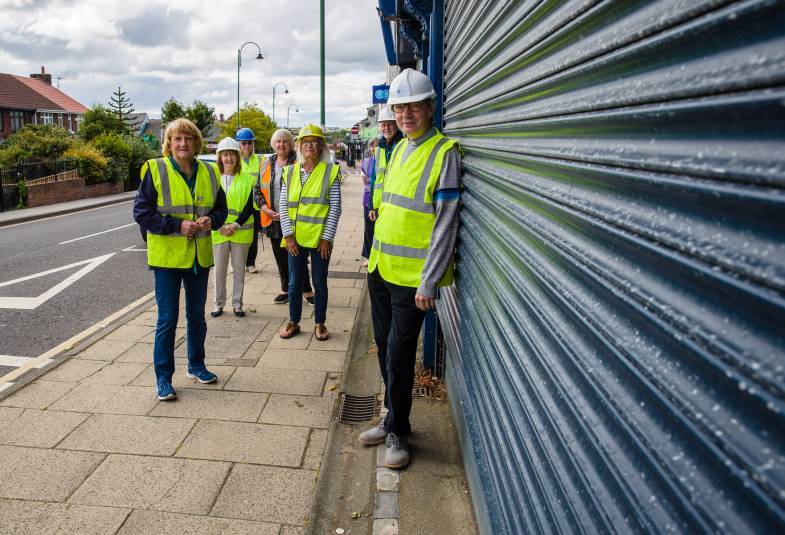
Commissioned by the Strategic Investment Board of the Archbishop’s Council, the review examined the Lowest Income Communities (LInC) and Strategic Development Funding (SDF) programmes through which the Church expects to award around £160 million in grants between 2020 and 2022.
The four-person review panel (membership details below) was chaired by the economist Sir Robert Chote (pictured, above).
The panel concluded that LInC funding has helped sustain the Church’s reach and ministry in many low income communities that might otherwise lose it.
Dioceses are reporting that it is supporting at least 1,700 parishes and that many of them would not have their current level of stipendiary clergy without this, according to the report.
SDF projects have revitalised mission and brought people to faith in places and among groups that the Church feels it has under-served. But Covid-19 has inevitably created big challenges for project planning, delivery and monitoring.

The review recommendations include:
- The Church should align the future objectives and monitoring of LInC and SDF with the emerging goals of Vision & Strategy, while seeking greater unity of purpose and trust.
- The Church should do more to deploy funding with intentionality across the full range of church traditions, missional challenges and into projects that cross diocesan borders.
- The Church should allocate more resources to Innovation Funding for pilot schemes and examine alternative models that might foster bottom-up innovation.
- When targeting project funding, the Church should consider social class more explicitly, ensure that the prioritisation of UKME communities is reflected in allocations, and be more willing to fund projects that might help develop sustainable models for rural ministry.
- The Church should ensure that lessons from successful projects are shared beyond the projects themselves so as to adapt and replicate them to the benefit of the whole Church, in part through Subject Matter Experts and champions and supporting materials.
- The Church should build on the improvements in diocesan strategic capability that SDF has encouraged to move from project-by-project to more strategic funding conversations.
- The Archbishops’ Council should revisit its quantitative objectives for SDF and the methodology used to present measures of new disciples witnessed and expected.
- The Church should place greater emphasis on training for missional leadership as well as examining how the diversity of leaders and worshipping communities evolves over time.
- The Church should at least maintain current LInC funding. It should improve reporting and communication but be cautious about changing the distribution formula again.

Sir Robert said: “In our visits to projects and parishes supported by SDF and LInC, we have been inspired by the leaders and workers we have met and all that they are doing in ministry, mission and social action.
“It is still relatively early days for these schemes, but it is hugely encouraging that the Strategic Investment Board is open to outside reflection on this work and we hope that some of our reflections will be of help as they seek to further the Church’s work.”
John Spence, Chair of the Strategic Investment Board, said: “We warmly welcome this report and thank Sir Robert and his team for their thorough and detailed work.
“We are deeply grateful to the panel members and keenly aware of how much we have benefited from their specialist expertise.
“We are encouraged that they have endorsed the overall approach of growing the Church by funding diocesan strategies to better support people on their journey to faith and subsequently in their growth as disciples.
“The report challenges the Church of England to embrace a simpler, humbler and bolder approach that channels the national funding in a way that helps the Church face its most important challenges.
“Its recommendations will be a great help in strengthening the use of and learning from the national Church funding.
"This will help us to better ensure that the fruits of the Holy Spirit already being seen – sustaining ministry in deprived communities, revitalised parishes, the creation of new worshipping communities – can flourish in the future.”
More information
The full membership of the Review is below:
- Sir Robert Chote (Chair) – economist and former journalist; Chair of the Northern Ireland Fiscal Council; Trustee of Westcott House theological college; and former head of the Office for Budget Responsibility and Institute for Fiscal Studies.
- Bishop Sarah Clark – Bishop of Jarrow; previously Archdeacon of Nottingham and a parish priest in a low-income community
- Stephen Smith – Chartered Accountant, former Executive Director of the National Audit Office; previously a Partner at KPMG; Trustee of St Mungo’s homelessness charity; and a non-executive member of Rochester Cathedral’s Finance Committee.
- Busola Sodeinde – Chartered Accountant, former CFO at State Street Bank. Founder of Bearings Point Media, Church Commissioner (on its Audit & Risk Committee), Trustee of The Scouts Association, Non-executive Director at Ombudsman Services. General Synod member.
Panel members began work in September last year. Their work has included visiting projects in Manchester and Exeter dioceses, conducting a survey of dioceses and talking with people working in both dioceses and the national church.
Linc funding and Strategic Development Funding:
- Linc funding supports ministry and social action in the lowest income communities and is distributed to dioceses based on the size and average income of their populations, modified to reflect the proportion of the population with very low incomes.
- SDF supports major change programmes or activities which fit with dioceses’ strategic plans, and which are intended to make a significant difference to their mission and financial strength.
- Both funding streams were set up after the Archbishops’ Council commissioned the Resourcing the Future review into the use of national Church funding from 2017 to 2026.
- The Archbishops’ Council currently expects to award £102 million through LInC (including £20 million in transition funding) and £60 million through SDF and Innovation Funding in the current triennium funding period from 2020 to 2022.
- Together the two streams account for around 20 per cent of the total resources to be released by the Church Commissioners over this period and 3% of the Church of England’s economy.
The pictures above show SDF funded projects in Durham and Exeter Diocese.